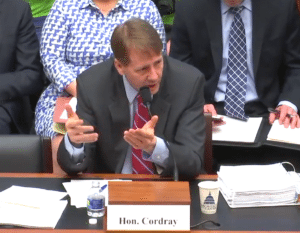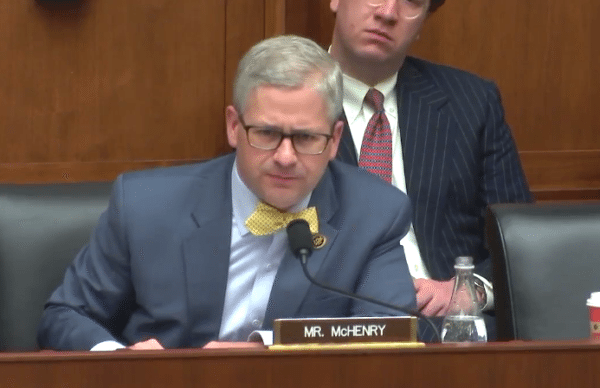 The Consumer Financial Protection Bureau (CFPB) was created out of the ashes of the Great Recession. A knee jerk-reaction crafted by elected officials attempting to fix what went wrong, the controversial agency has since earned much criticism while having its structure deemed unconstitutional. At a minimum, the CFPB is need of serious reform. Some policymakers believe it should be wound up and shut down with needed responsibilities dispersed amongst the dozen or so federal agencies already regulating the finance industry.
The Consumer Financial Protection Bureau (CFPB) was created out of the ashes of the Great Recession. A knee jerk-reaction crafted by elected officials attempting to fix what went wrong, the controversial agency has since earned much criticism while having its structure deemed unconstitutional. At a minimum, the CFPB is need of serious reform. Some policymakers believe it should be wound up and shut down with needed responsibilities dispersed amongst the dozen or so federal agencies already regulating the finance industry.
Congressman Patrick McHenry, a champion of financial innovation and staunch advocate for small business, recently published an Op-Ed in the American Banker where he slammed the CFPB and, specifically, the organization’s Project Catalyst. This section of the CFPB is described as:
“We [the CFPB] support consumer-friendly innovation in the marketplace. If you have an idea for a better disclosure, a pilot program, or a new type of product, we’ll be happy to talk to you about waivers or partnerships. You can also ask about in-person meetings to discuss ideas.”
Project Catalyst was said to be a way to make financial innovation work for consumers. Along with assuring consumer protection, Fintech innovation would be supported to drive down cost, improve transparency and “make people’s lives better”. A “No Action Letter” was made available to for “applicant(s) [that] shows the product holds the promise of substantial consumer benefit.”
That was back in 2014.
 Today, Congressman McHenry is describing the CFPB no action letter as a “punch line” and Project Catalyst, well, a flop.
Today, Congressman McHenry is describing the CFPB no action letter as a “punch line” and Project Catalyst, well, a flop.
“When it comes to Project Catalyst’s no-action letter policy, the CFPB has become at worst a punch line, and at best a cautionary tale. The CFPB’s no-action letters are non-enforceable and non-transferrable, and they can be revoked at any time. It is little wonder that a total of zero no-action letters have been granted since the policy was announced last year. In short, the program has been a flop.”
McHenry says that Congressional action is a must. For Fintech entrepreneurs to be empowered elected officials must clear the path of regulatory morass.
Pointing to the UK, the very first country to create a regulatory Fintech Sandbox where innovation may bloom in a controlled environment, it can easily be done. The Fintech Sandbox concept has since been replicated around the world thus leveraging the UK’s experience with early success. Not so much in the US.
 American consumers do deserver better. The rule upon regulation approach where every crisis is an opportunity to grow government has failed. Partisan politics must be shoved aside to allow consumers to access better and less expensive financial services. Congressman McHenry sees opportunity in the shortcomings of the CFPB;
American consumers do deserver better. The rule upon regulation approach where every crisis is an opportunity to grow government has failed. Partisan politics must be shoved aside to allow consumers to access better and less expensive financial services. Congressman McHenry sees opportunity in the shortcomings of the CFPB;
“Let’s use the failed experiment that is the CFPB’s Project Catalyst to turn good intentions into real reform.”
Empowering innovation as opposed to blocking entrepreneurial creativity is what is clearly needed now. Hopefully Congress will stand up and act – to the benefit of both consumers and business.

